This past summer, I had the incredible opportunity to travel to Zanzibar, Tanzania, for my summer practicum. Coming from Senegal, West Africa, I was thrilled to explore a different part of the continent, immerse myself in a new culture, and understand a new healthcare system.
The primary goal of my practicum was to investigate the main drivers of imported malaria cases in Zanzibar. Despite a recent increase in local malaria cases, we observed that many positive cases were actually imported by community members who had traveled to mainland Dar es Salaam or neighboring countries, contracted malaria during their travels, and brought it back to the island. Our objective was to design a pilot study to inform us about general travel patterns and the acceptability of potential interventions. I began my practicum by designing traveler surveys that examined demographics, household malaria risk, recent and general travel habits, among other factors.
Once in Zanzibar, our team needed to disseminate the surveys in two key locations. Given that the ferry is one of the most commonly used modes of transportation between Zanzibar and the mainland, we targeted ferry travelers first. After meeting with representatives from the Ministry of Health, we were granted approval to set up a station in the ferry terminal waiting area, allowing us to reach a large number of travelers as they awaited their ferries. Our second target was Reactive Case Detections (RCDs), which involved community members who had tested positive for malaria. Zanzibar has a system in place where, when someone tests positive, district malaria surveillance officers (DMSOs) are alerted. These officers visit the household of the patient to test all members and provide free treatment if necessary. We aimed to distribute surveys in both settings and offer free malaria rapid tests, along with treatment for any positive cases. Together with two fellow UNC students, we trained the DMSOs on conducting the surveys and collaborated with them to adapt the study to their existing case detection systems.
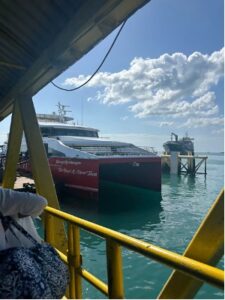
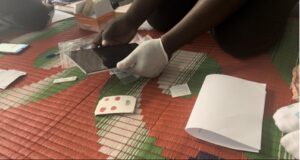
I thoroughly enjoyed learning more about the Zanzibar Elimination Program and the systems they have established in their quest to eradicate malaria. One of the key lessons I took away from this experience was the importance of cultural competence and community-based approaches. The DMSOs were all public health experts who lived and worked within the communities, spoke the local language, Swahili, and had a deep understanding of the local culture and values. Their involvement made a significant difference in the study, facilitating trust-building with participants and tailoring the study to their needs and values. I loved being immersed in the community and experiencing the environment in which our participants lived. Although I didn’t speak Swahili, I quickly realized that even simple phrases like “jambo” (“how are you”) and “asante” (“thank you”) went a long way in connecting with community members.
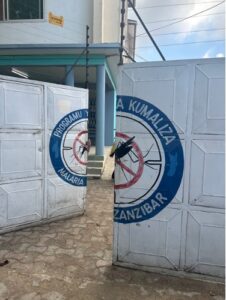
I will never forget the warmth and hospitality of the Zanzibari people. Everyone was so welcoming and kind. One of favorite memories from the entire summer was taking a local cooking class with the Mamas of Zanzibar. I wore their traditional attire, joined them at the neighborhood market to buy groceries, and fully immersed myself in the daily lives of Zanzibari women. From the stunning beaches and sunsets to the historic beauty of Stone Town, Zanzibar will forever hold a special place in my heart. This experience has reinforced my commitment to global health, particularly in capacity building and implementing community-led interventions to address healthcare disparities and advance the field.
Asante Sana, Zanzibar!
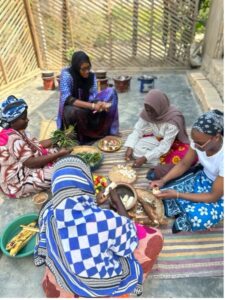
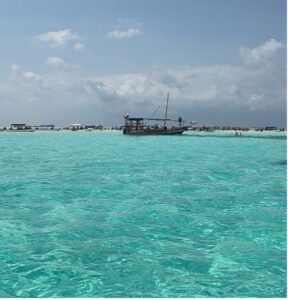
~ Rokhaya Kane, 2nd year MPH Student in Global Health
